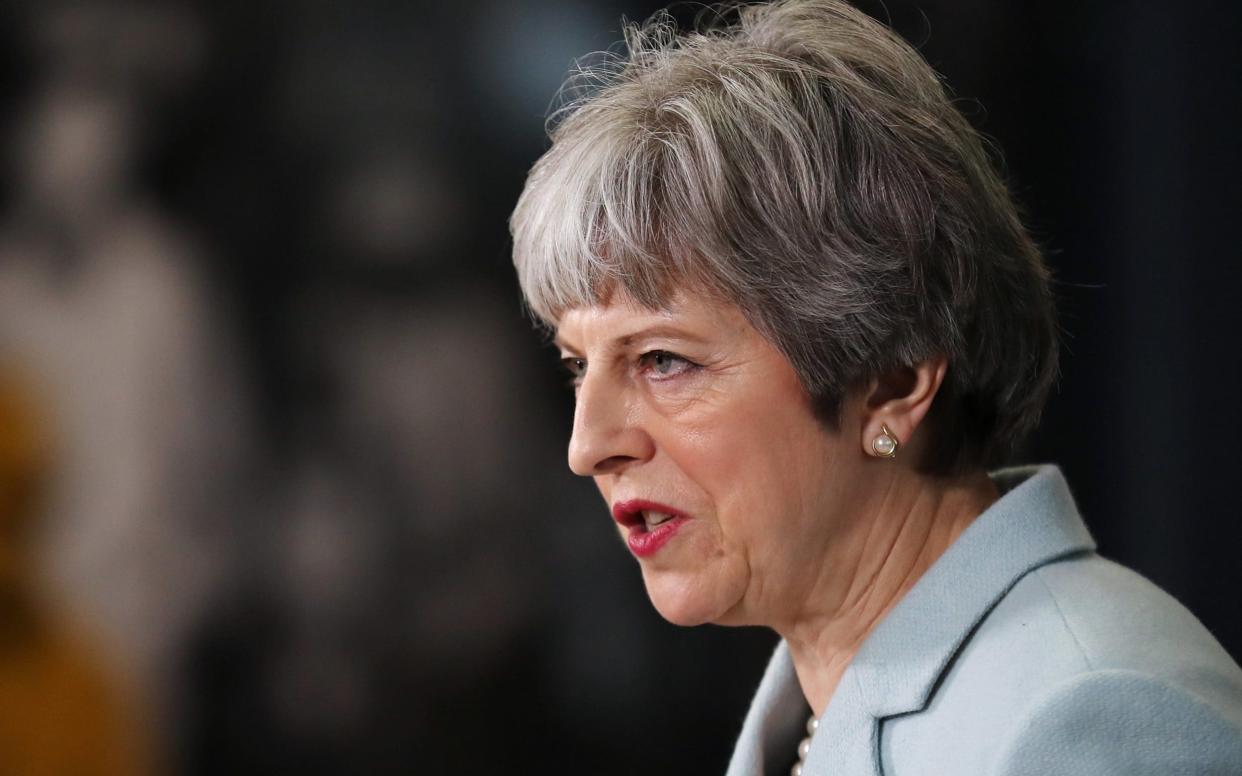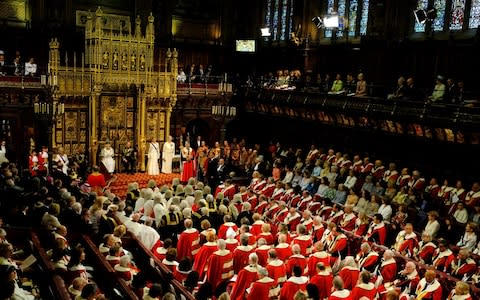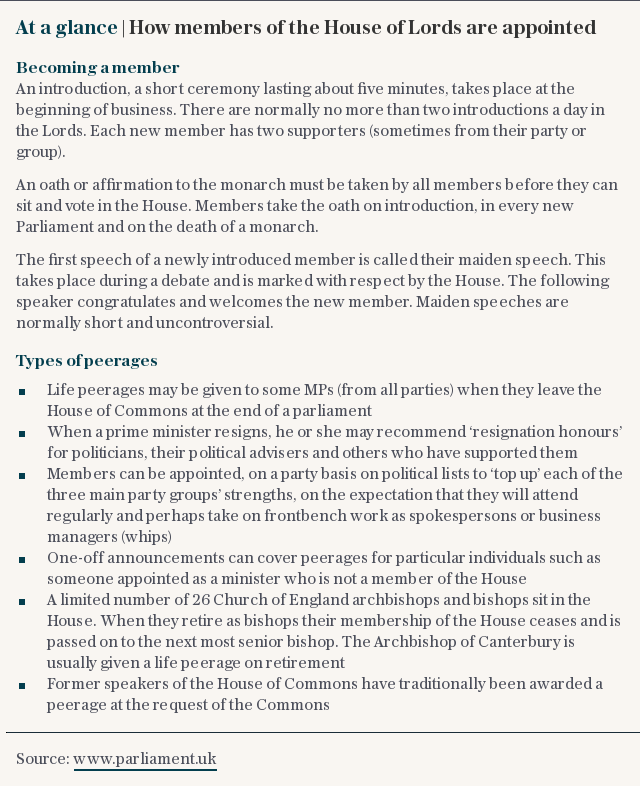Theresa May urges peers to retire and calls time on automatic peerages in bid to cut size of House of Lords

Theresa May has suggested peers who fail to turn up and contribute to the House of Lords should be encouraged to resign in order to cut the size of the upper chamber.
The Prime Minister has also pledged to end the convention of top ranking judges and police officers being automatically offered a peerage when they retire.
However, she has stopped short of backing proposals to cut the number of peers from more than 800 to 600 and said such a move would “require further consideration” to ensure there are no “unintended consequences”.
Mrs May set out the Government’s position as she responded formally to a cross-party report, chaired by Lord Burns, on slashing the size of the House of Lords.
The Prime Minister’s failure to commit to radical reforms is likely to leave pro-democracy campaigners cold.
But her pledge to clampdown on appointments is likely to be welcomed by critics who have attacked the handing out of peerages in recent years as exercises in “cronyism”.
Mrs May outlined the Government’s response to the report in a letter to Lord Fowler, the Lord Speaker of the House of Lords.

She said: “I intend to continue with the restraint which I have exercised to date and, when making appointments, to allocate them fairly, bearing in mind the results of the last general election and the leadership shown by each party in terms of retirements.
“I will also operate on the basis that there is no automatic entitlement to a peerage for any holder of high office in public life.”
She added: “I believe that a combination of restraint on appointments and an increased, cross-party take up of retirement would represent the most effective action which could be taken immediately to address the real concerns about the size of the House.”
A Downing Street spokesman said the Prime Minister believed political parties which are serious about reducing the size of the upper chamber “should do more to encourage retirement” among their peers.
The upper chamber has faced frequent criticism over the number of lords claiming expenses but failing to take part in votes and debates, prompting calls for a crackdown on “silent peers”.
In the letter the Prime Minister said there needs to be “continued restraint over new appointments and a sustained commitment from all parties and none to reduce the size of the House through retirement”.
Since Mrs May became Prime Minister in 2016 she has appointed eight people to the Lords.

Over that same period some 28 peers have retired, two have been removed for non-attendance and 16 have died.
Meanwhile, there have been a total of 24 new appointments and two new hereditary peers.
That means that the total number of peers has reduced by 20 since Mrs May took office.
She said in her letter to Lord Fowler that she is “keen to maintain that trajectory”.
Lord Burns’ review proposed a target of 139 departures by 2022.
Mrs May said in her letter that measures aimed at keeping the House of Lords in a smaller state should be considered once the effectiveness of the steps to reduce the number of peers have been evaluated.

 Yahoo News
Yahoo News 
